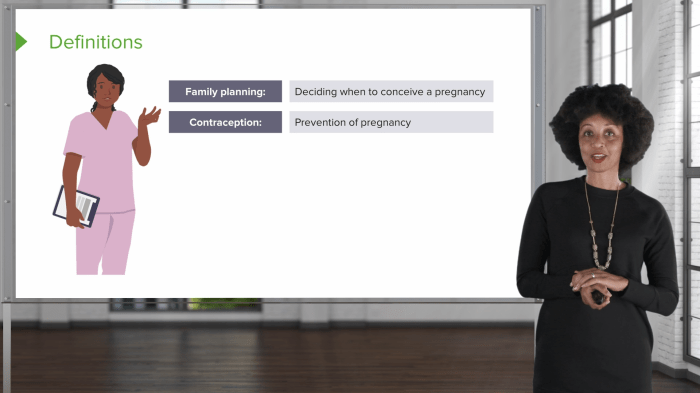A nurse is reviewing contraception options for four clients, each with unique circumstances and concerns. This discussion explores various contraceptive methods, their effectiveness, potential side effects, and how lifestyle factors influence the choice of contraception. By providing evidence-based information and addressing common misconceptions, the nurse empowers clients to make informed decisions about their reproductive health.
The nurse begins by discussing hormonal contraceptives, including oral contraceptives, transdermal patches, and vaginal rings, highlighting their effectiveness and potential side effects. Next, non-hormonal options are explored, such as barrier methods (condoms, diaphragms, cervical caps) and natural family planning methods, emphasizing their advantages and disadvantages.
Answers to Common Questions: A Nurse Is Reviewing Contraception Options For Four Clients
What are the most effective contraceptive methods?
The most effective contraceptive methods are long-acting reversible contraceptives (LARCs), such as intrauterine devices (IUDs) and contraceptive implants, which have failure rates of less than 1%.
What are the potential side effects of hormonal contraceptives?
Potential side effects of hormonal contraceptives include nausea, breast tenderness, mood changes, and irregular bleeding. However, these side effects typically subside within the first few months of use.
How can I choose the best contraceptive method for me?
The best contraceptive method for you depends on your individual needs, preferences, and lifestyle factors. It is important to discuss your options with a healthcare provider to make an informed decision.



